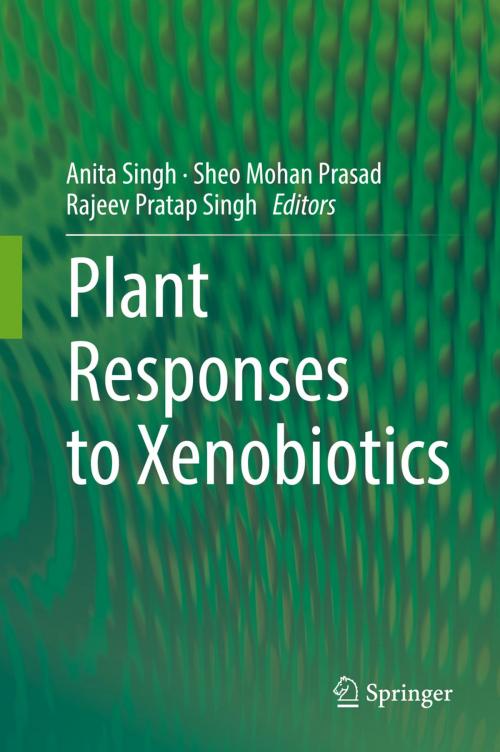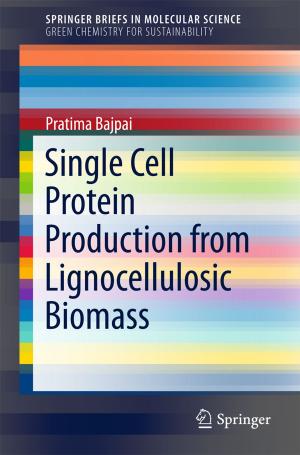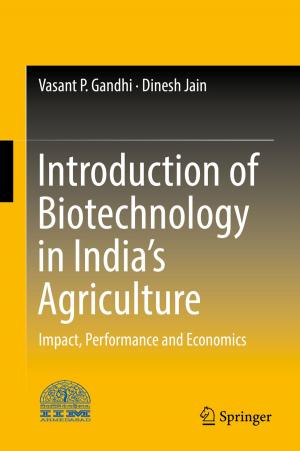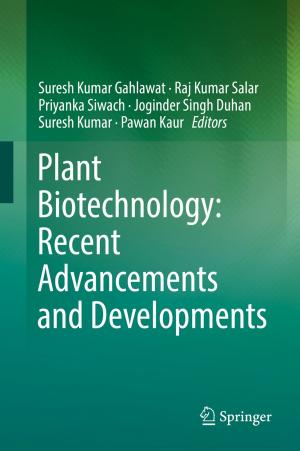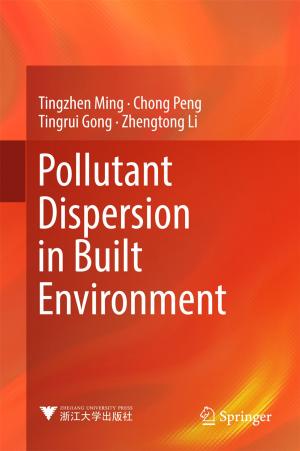Plant Responses to Xenobiotics
Nonfiction, Science & Nature, Science, Biological Sciences, Botany, Environmental Science| Author: | ISBN: | 9789811028601 | |
| Publisher: | Springer Singapore | Publication: | December 28, 2016 |
| Imprint: | Springer | Language: | English |
| Author: | |
| ISBN: | 9789811028601 |
| Publisher: | Springer Singapore |
| Publication: | December 28, 2016 |
| Imprint: | Springer |
| Language: | English |
This book is compilation of studies related with the xenobiotics i.e. chemical or other substance that is not normally found in the ecosystems and get accumulated at higher concentration in the biological system due to rampant industrialisation and urbanisation activities. This book has tried to give information on various issues to give comprehensive and concise knowledge of the recent advancement in the field of environmental xenobiotics and how it disturbs the plants metabolism. Other key features of the book are related to xenobiotic toxicity and detoxification mechanism, biochemical tools toward its remediation processes, molecular mechanism for xenobiotics detoxification and effect on metallomics. It also focuses on recent development in the field of waste water remediation concerned with the xenobiotics involvement. This book is different in such a way that it includes all the initial information along with the new researches. It includes the description of problem along with its solution. This volume describe the effects of xenobiotics at different levels i.e. biochemical, physiological and molecular, giving the details on signaling pathways to modify the responses of xenobiotics in plant system. Thus, it gives confirming crosstalk between xenobiotic effects and signalling pathways.
This book includes description about both the organic contaminants such as pesticides, solvents and petroleum products as well as inorganic xenobiotics that include heavy metals, non-metals, metalloids, and simple soluble salts. Here the plant is main objective and that have to deal with these kinds of compounds either by avoiding accumulation of these compounds or by exhibiting several enzymatic reactions for detoxification including oxidation, reduction, and conjugation reactions. Affected plants exhibit several enzymatic and non-enzymatic antioxidant and other reactions for detoxification of ROS including oxidation, reduction, hydrolysis and conjugation reactions. The book focuses on different forms and sources of xenobiotics including organic and inorganic xenobiotics. The matter of this book will definitely increase the knowledge about the impacts of xenobiotics on plants system. There must be potentially broad readership who could find this fruitful for their study as well as for their research. As this book has balance between basic plant physiology and toxicity caused by the xenobiotics so it can be widely used in several disciplines.
Overall, the book will bring deep knowledge in the field of xenobiotics toxicity in plants during recent years and it is definitely a compilation of interesting information which isn't fully covered elsewhere in the current market.
This book is compilation of studies related with the xenobiotics i.e. chemical or other substance that is not normally found in the ecosystems and get accumulated at higher concentration in the biological system due to rampant industrialisation and urbanisation activities. This book has tried to give information on various issues to give comprehensive and concise knowledge of the recent advancement in the field of environmental xenobiotics and how it disturbs the plants metabolism. Other key features of the book are related to xenobiotic toxicity and detoxification mechanism, biochemical tools toward its remediation processes, molecular mechanism for xenobiotics detoxification and effect on metallomics. It also focuses on recent development in the field of waste water remediation concerned with the xenobiotics involvement. This book is different in such a way that it includes all the initial information along with the new researches. It includes the description of problem along with its solution. This volume describe the effects of xenobiotics at different levels i.e. biochemical, physiological and molecular, giving the details on signaling pathways to modify the responses of xenobiotics in plant system. Thus, it gives confirming crosstalk between xenobiotic effects and signalling pathways.
This book includes description about both the organic contaminants such as pesticides, solvents and petroleum products as well as inorganic xenobiotics that include heavy metals, non-metals, metalloids, and simple soluble salts. Here the plant is main objective and that have to deal with these kinds of compounds either by avoiding accumulation of these compounds or by exhibiting several enzymatic reactions for detoxification including oxidation, reduction, and conjugation reactions. Affected plants exhibit several enzymatic and non-enzymatic antioxidant and other reactions for detoxification of ROS including oxidation, reduction, hydrolysis and conjugation reactions. The book focuses on different forms and sources of xenobiotics including organic and inorganic xenobiotics. The matter of this book will definitely increase the knowledge about the impacts of xenobiotics on plants system. There must be potentially broad readership who could find this fruitful for their study as well as for their research. As this book has balance between basic plant physiology and toxicity caused by the xenobiotics so it can be widely used in several disciplines.
Overall, the book will bring deep knowledge in the field of xenobiotics toxicity in plants during recent years and it is definitely a compilation of interesting information which isn't fully covered elsewhere in the current market.
